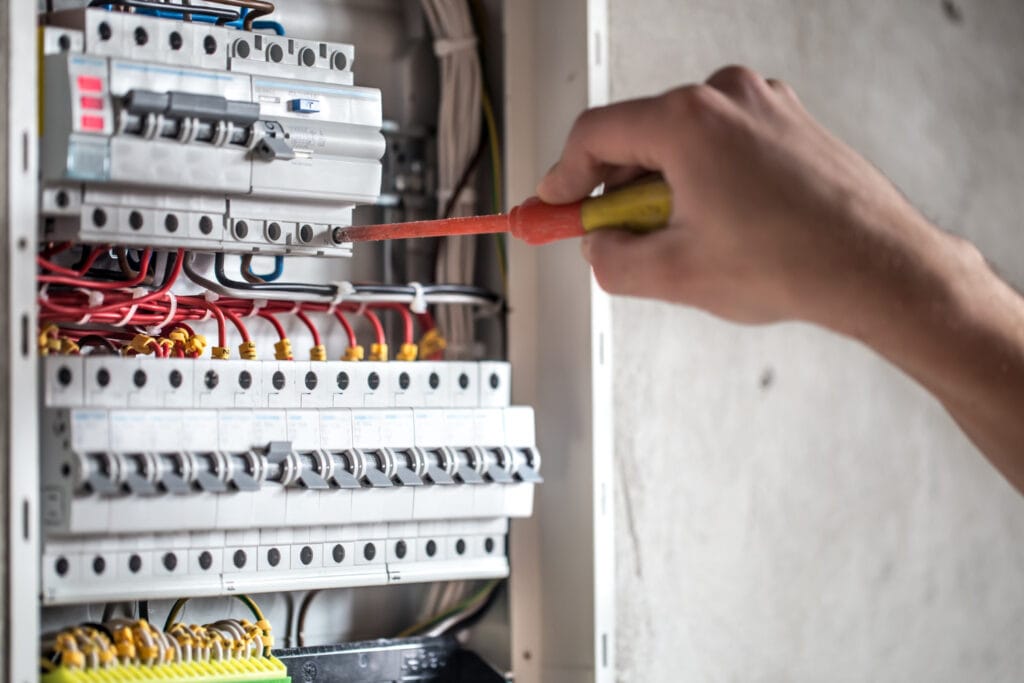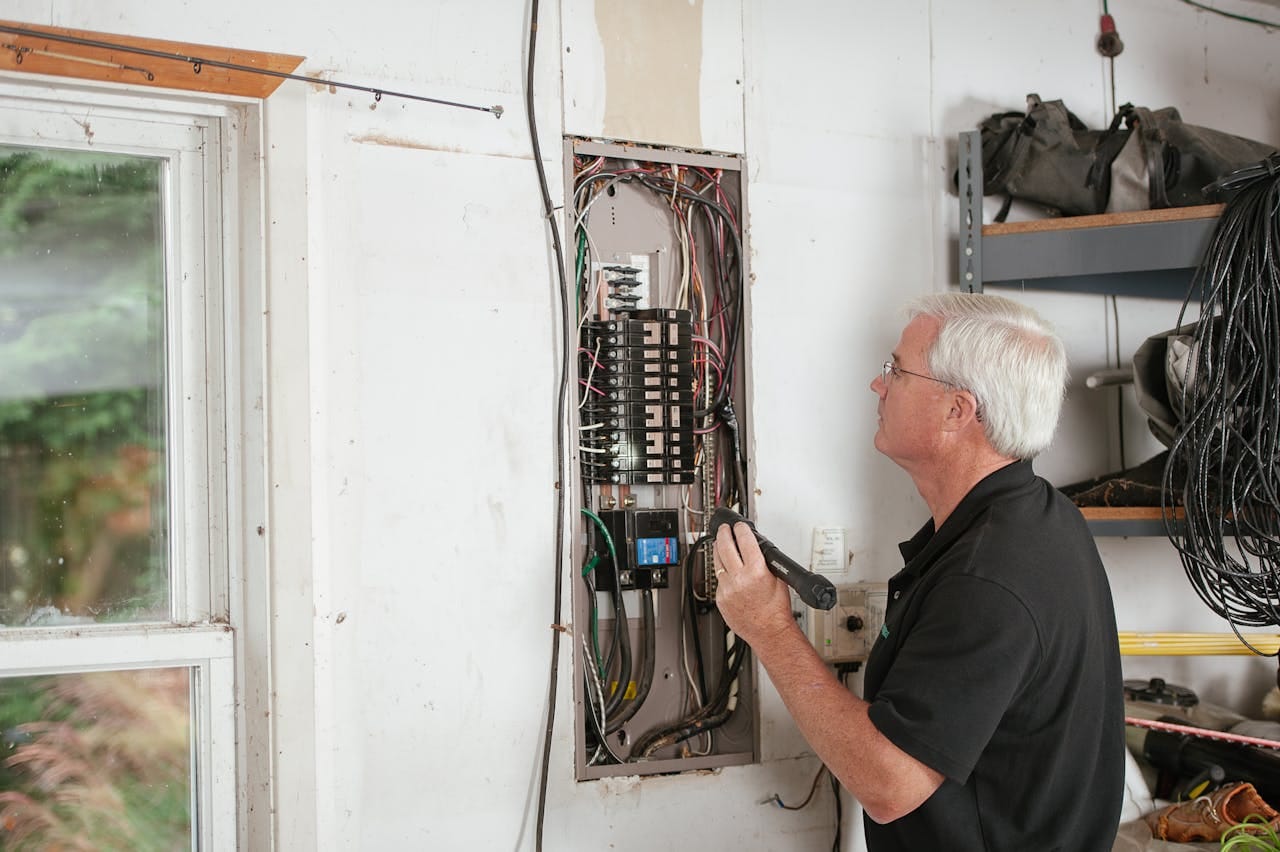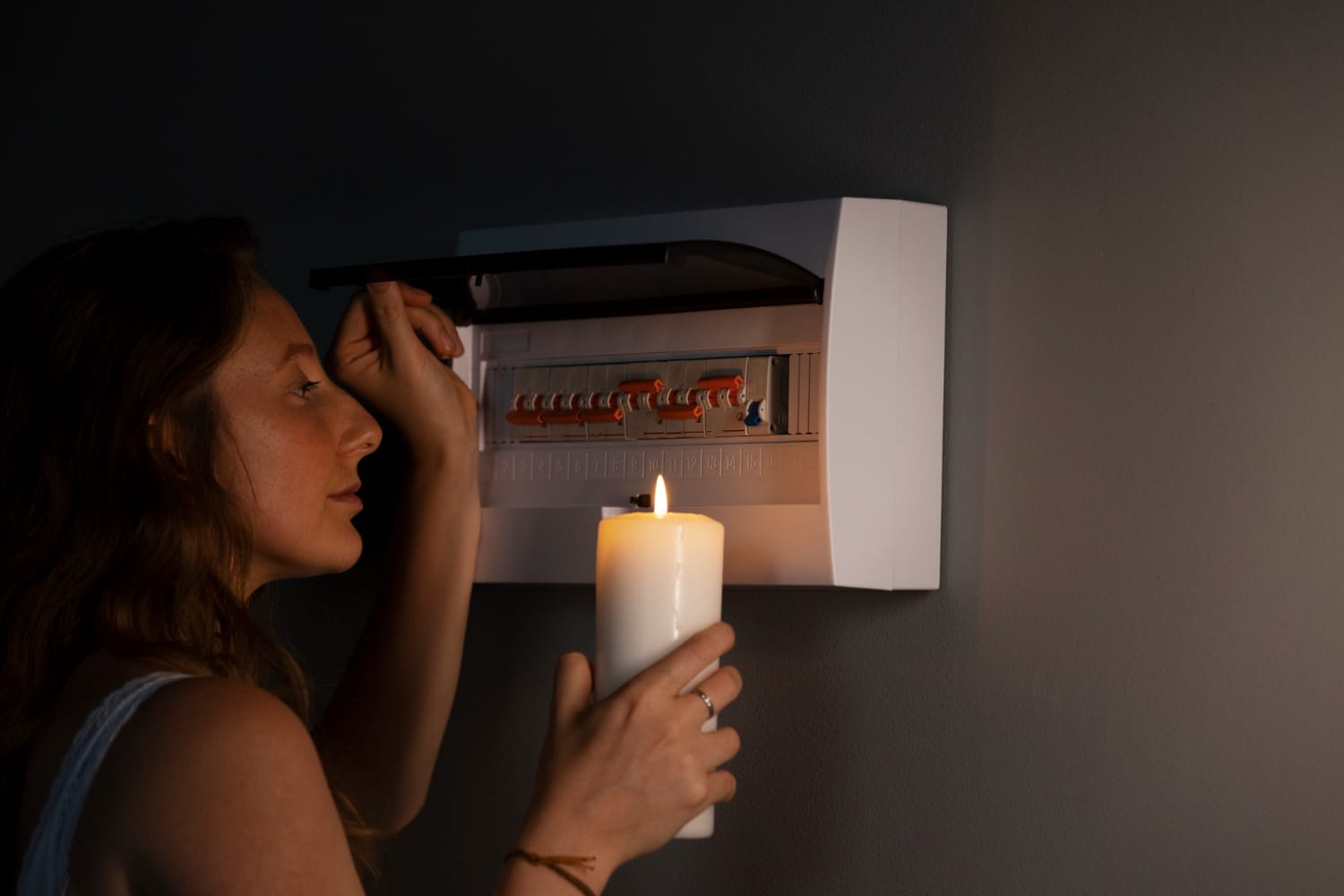If your home in Ottawa was built between the 1960s and late 1970s, there’s a fair chance it was wired with aluminum. At the time, aluminum was a cheaper alternative to copper and was widely used in residential buildings. But decades later, this kind of wiring has turned into more of a problem than a solution. What once saved builders money now poses a serious safety risk for homeowners.
Aluminum wiring can lead to overheating, failed connections, and even house fires if not addressed. Many homeowners either don’t know it’s in their home or aren’t aware of the risks it brings. If you’re living in an older house and haven’t considered what’s behind your walls, now might be the time to take a closer look. Here’s a breakdown of the risks and the steps that can be taken to replace old aluminum wiring with safer, modern materials.
Understanding the Safety Risks of Aluminum Wiring
Aluminum wiring was popular when copper prices soared. On paper, it seemed like a good alternative. It conducts electricity and was a lot more affordable at the time. But in practice, aluminum behaves differently from copper in ways that create real safety issues.
Aluminum expands more than copper when heated. This expansion and contraction, happening again and again during everyday use, can loosen appliance and fixture connections over time. Once a connection is loose, it generates heat. That heat can cause scorch marks, melted insulation, and even sparks leading to electrical fires.
Another risk comes from corrosion. Aluminum builds up an oxide layer when it contacts air, which increases resistance in the wire. Over time, this corrosion creates more heat at connection points, leading to higher chances of failure.
Here are some warning signs of issues with aluminum wiring:
– Scorch marks around switches or outlets
– A faint burning smell with no visible cause
– Flickering lights that don’t respond to bulb changes
– Warm or loose outlet or switch covers
– Breakers that trip repeatedly
One Ottawa homeowner reported their hallway lights flickering for weeks before getting help. It turned out the connections had melted behind the drywall due to the heat caused by aluminum wire expansion. The situation could have led to a fire if it hadn’t been caught in time.
These risks often stay hidden behind walls, so early detection makes a big difference. Regular use wears on aluminum connections slowly, building toward a tipping point. Staying ahead of the issue can help avoid damage and danger.
Identifying Aluminum Wiring in Your Home
The first step in dealing with aluminum wiring is figuring out whether your home has it. If your home was built during the 60s or 70s, it’s worth checking. A good place to start is the main electrical panel or circuit breaker box.
Inside the panel, look for writing on the visible sheathing of the wires. Aluminum wires are often marked with “AL” or “ALUM.” These markings may appear on the cable jacket or around connection points.
You can also check behind outlets and switches, but this must be done with the power off. After safely removing the cover, look at the wires attached to the terminals. Aluminum has a dull gray appearance, while copper is a brassy orange. If you see gray wires and the circuits were installed during or before the 1970s, they could be aluminum.
Other possible indicators of aluminum wiring include:
– Outlets with poor connection where plugs feel loose
– Lights that dim when large appliances are used
– Strange static or humming sounds in electronics or radios
– A history of unexplained breaker trips
Even if you don’t find clear signs, that doesn’t mean aluminum wiring isn’t present. Many homes have partially updated systems where some circuits were left untouched during earlier upgrades. A certified electrician can perform a full inspection and confirm whether your system uses aluminum wires.
This step is key. Knowing what you’re dealing with takes out the guesswork and gives you a better picture of what condition your wiring is in and what to do next.
Modern Solutions for Aluminum Wiring Replacement
Once aluminum wiring is confirmed, replacement is often the safest option. Full replacement with copper wiring is the most effective and long-lasting solution. Copper stands up better to heat and does not corrode in the same way aluminum does. It also forms secure, stable connections that are far less prone to overheating or loosening.
A full replacement might seem like a major project, but it can be done in steps depending on your home’s layout and your priorities. Many homeowners start with the rooms they use most often, like kitchens, bedrooms, or home offices. Others handle it by floor or section, especially in multi-level homes.
A typical aluminum wiring replacement process involves:
– Removing aluminum wires from affected circuits
– Installing new copper wiring that meets the latest code
– Replacing or upgrading outlets, switches, and fixtures as needed
– Testing each connection to ensure it performs safely
In some cases, homeowners ask about short-term solutions like connectors or treatments that aim to reduce risk without full rewiring. While these approaches may provide temporary peace of mind, they don’t offer the long-term safety and reliability of full replacement.
Each home’s structure and wiring history are unique. That’s why working with certified electricians who understand local building code and best practices in Ottawa is so important. They can adapt the work to fit your home and deliver results you can trust for years to come.
Ensuring Safety with Professional Help
Updating or replacing old aluminum wiring is not something homeowners should tackle on their own. It isn’t just a matter of swapping wires. Every new connection and circuit needs to follow rules outlined in the Canadian Electrical Code, and that includes the right materials, exact installation methods, and proper inspections.
Doing it yourself could lead to missed hazards, improperly grounded circuits, or risks that aren’t obvious until something fails. It might even void your home insurance.
Professional electricians bring in-depth experience and the right tools. Here’s what they typically do to keep your home safe:
– Conduct a full wiring assessment
– Map out a replacement strategy based on your needs and home layout
– Handle permit applications and inspections
– Make sure every component meets code and functions as required
Astra Energy Ltd handles all of these steps and more. With work rooted in the safety requirements of Ottawa homes and backed by professional certification, our team knows exactly how to deliver safe, reliable upgrades. We don’t take shortcuts because when it comes to electricity, taking the time to do it right matters every time.
Why It’s Smart to Get Ahead of the Problem
If your home still has aluminum wiring, making the switch is one change that brings long-term peace of mind. Electrical issues often start off small and quiet. You may not notice them at first, but they can build up until they cause serious damage. Getting ahead of the problem gives you control and removes the guesswork.
Older homes weren’t designed for the power demands of today’s devices and appliances. With smart home products, multiple chargers, AC units, and home offices all drawing more current, the stress on old systems is higher than ever. That’s why modern wiring is not just about safety, it’s part of future-proofing your home.
Acting early can also help when it’s time to sell. Buyers are becoming more aware of aluminum wiring problems. Many want to see updated wiring before making an offer or will lower their bid if the system hasn’t been upgraded.
Whether you choose to replace all the wiring at once or plan it out over time, it’s a step that adds safety, reliability, and home value. If you live in Ottawa and have an older home, it’s time to take a fresh look at what’s behind your walls and think about the next steps.
If your home was built during the 60s or 70s, it might be time to think about an aluminum wiring replacement. At Astra Energy Ltd, we help homeowners across Ottawa upgrade their electrical systems for better safety and reliability. Reach out today for expert help and a safer home tomorrow.



